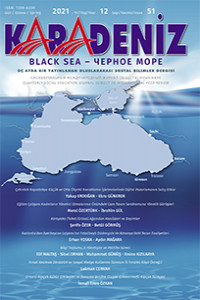AZERBAYCAN ŞİİR DİLİNDE ZAMAN KONSEPTİNİN SANATSAL FELSEFİ VE BİLİMSEL TEORİK MESELELERİ
ARTISTIC-PHILOSOPHICAL AND SCIENTIFIC-THEORETICAL ISSUES OF THE CONCEPT OF TIME IN THE AZERBAIJANI POETIC LANGUAGE
Author(s): Farid İbrahimliSubject(s): Studies of Literature, Aesthetics, Lexis, Semantics, Cognitive linguistics, Theory of Literature
Published by: Kültür Ajans Tanıtım ve Organizasyon
Keywords: language of poetry; the concept of time; grammatical structure; cognitive category; figurative concept; lexical-semantic system;
Summary/Abstract: The stylistic features of the concept of time in the Azerbaijani poetic language, the expressions of the time in text constructions in the expression of artistic philosophical thought, the issues of understanding time as a cognitive category in the process of artistic creativity have been studied. At all stages of the history of artistic thought - from ancient folklore to modern art - we encounter the stylistic and semantic possibilities of time in the aesthetic, emotional-expressive, figurative language layer of artistic thought. Observation of the means of expression of the concept of time on specific artistic examples, the study of functional stylistic possibilities of the means of expression of time, along with identifying aspects of time as a cognitive category, creates trends in the development of Azerbaijani poetry, ethnopsychological factors, cognitive-psychological development. As the direction of research is multifaceted, the directions of application of the obtained results are different, and these directions are not outside of life, nature and society. Categories such as time, space and motion carry the information burden of all spheres of concept and thought in the semantic context. In the process of transforming perception into a concept, the conceptual understanding of time is a separate direction in scientific creativity. In the process of scientific creativity, the understanding of the philosophical content of time plays a leading role, rather than the linguistic content of time. In fact, the perception of time as a cognitive category begins with the philosophical perception of time. The means of expression in the language layer of the time create conditions for its linguistic research. From this we can conclude that the study of time as a cognitive category is a more general issue, which includes the study of time in a philosophical and linguistic direction.
Journal: Karadeniz Uluslararası Bilimsel Dergi
- Issue Year: 2021
- Issue No: 51
- Page Range: 234-252
- Page Count: 19
- Language: Turkish

